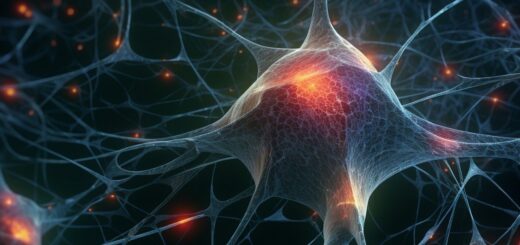Mindfulness Meditation Reveals Unique Brain Mechanisms for Pain Relief, Distinguishing It from Placebo Effects
by RL Olegário · Published · Updated

A groundbreaking study from UC San Diego has uncovered distinct brain mechanisms that underpin mindfulness meditation’s ability to reduce pain, distinguishing it from the placebo effect. Published in Biological Psychiatry, the research demonstrates that mindfulness meditation not only alleviates pain intensity and unpleasantness but also activates unique neural processes that differ from those triggered by placebo treatments.
The study, led by Fadel Zeidan, PhD, Professor of Anaesthesiology at UC San Diego, involved 115 healthy participants exposed to painful heat stimuli while their brain activity was monitored using advanced imaging techniques. Participants were divided into four groups: one practised guided mindfulness meditation, another engaged in “sham” mindfulness meditation (deep breathing), a third applied a placebo cream (petroleum jelly), and the final group listened to an audiobook.
By applying machine learning to analyse brain activity, the researchers identified three distinct neural patterns associated with pain response: NAPS (emotional experience), SIIPS-1 (expectations and psychosocial factors), and NPS (pain intensity). The findings revealed that mindfulness meditation specifically altered the NAPS and NPS patterns, reducing brain activity linked to emotional pain responses and pain intensity. In contrast, the placebo cream only modified brain activity associated with the placebo effect, without affecting the overall pain experience.
Unlike the placebo cream and sham mindfulness, which had a minimal impact on pain intensity and brain activity, mindfulness meditation resulted in a significant reduction in pain, indicating that it operates through entirely different neural pathways. This reinforces the notion that mindfulness is a direct treatment for chronic pain, rather than merely activating the placebo response.
Zeidan emphasised the potential of mindfulness as an effective, drug-free approach to managing pain, particularly for those with chronic conditions. “Millions of people live with chronic pain, and we now have a deeper understanding of how mindfulness can help reduce their pain and improve their quality of life,” he said.
This study represents a significant advancement in understanding the neurobiological mechanisms behind mindfulness meditation and its potential for pain management. Further research is needed to explore its effects in individuals with chronic pain.
In a related development, the United Nations General Assembly has declared 21 December as World Meditation Day, following the adoption of a draft resolution co-sponsored by India. An inaugural event at the United Nations headquarters in New York was attended by renowned Indian spiritual teacher Sri Sri Ravi Shankar, who led a record-breaking live meditation for Global Peace and Harmony, with an estimated 8.5 million people participating worldwide.





